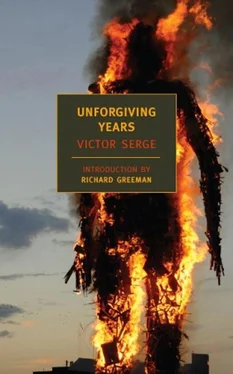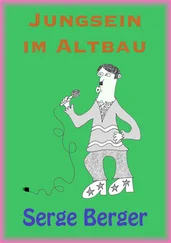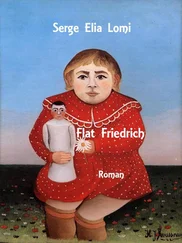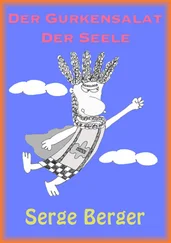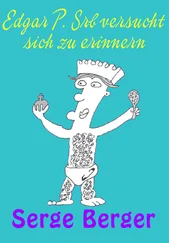“People are somewhat more dangerous. Crescenciano, the blacksmith, has taken a few shots at me — from a safe distance it must be said, and with no intent to harm. We are on cordial terms, so I assume he was high at the time, maybe on something other than alcohol. It’s so tempting to hold someone else’s life at the end of a barrel, to play with it a bit, it makes you feel powerful, you might even feel good. Crescenciano is a good man, because I’m still alive. A mournful man and a contemplative one — if contemplating is what he’s doing when he squats under the moonlight in his sarape and doesn’t budge for hours. Then he resembles the small black vultures you see all over like perpetually famished monks. His wife assures me he meant no offense and was in fact distressed at the possibility of hitting me, unless it happened to be God’s will (and how to know whether it is His will or not except by pulling the trigger?). All he wanted was to play a good joke on me, shoot a hole in my hat brim. I went over to Crescenciano one night during fiesta; we hung our best hats on stakes in the ground and shot at them, laughing uproariously (that is to say sound-lessly). It was one of my ideas; after that, I felt a little safer… I treat the children’s illnesses. Pancho’s have amoebas, Isidro’s suffer from glands. I administer light doses of sulfa and so am reckoned to be a bit of a sorcerer, even if nothing prevents them from buying the stuff themselves at Don Gamelindo’s… The real sorceress, Doña Luz, knows I haven’t a clue about the secret arts; just as the friendly rattlesnake knows that I have no venom whereas he does. I treat young Ponce when he falls down dead drunk. He also gets epileptic fits, which Doña Luz cures better than me — by letting them run their course, not without burning herbs and powdered bone… Her medicine beats mine by a few centuries, for she is the repository of a knowledge that goes back to Neolithic cultures. Doña Luz has cured me of fevers I couldn’t even identify. She is very good for Noémi.
“You know Noémi’s transparent eyes, their ephemeral, indecisive attentiveness, their luminous panic… Noémi is calm; she pretends, especially to herself, to have forgotten everything, not to know about the war; she pretends she has overcome the fear of fear. She reads the same books over and over, line by line, and I believe she’s not so much reading as abandoning herself to the reveries engendered in her by the words on the page. She does the housework singing to herself. Sometimes she doesn’t recognize me anymore or thinks I’m someone else. She laughs like a child: ‘You think you’re fooling me! You play him very well! I don’t hold it against you…’ I think I do play my characters very well indeed, and that no one should hold it against me. Then she changes, and sees me again. ‘Ah, there you are again, I’m happy!’ But there is a note of resentment in her tone. I believe Doña Luz keeps a double of me, a magic doll, and does to it whatever is required to bring me back from the most mysterious journeys.
“Noémi can sense the approach of earthquakes, which are frequent and harmless. She says, ‘My bones are cold, the earth is going to shiver…’ She wakes me in the night and says, ‘Listen…’ I light the candle, we look at each other and smile, alert as one body to the trembling of the mountain and the whispers of the lake. Her eyes are seldom as beautiful as at these times, and these are precious moments between us… If the earth begins to roll and pitch more, we go out into the garden, stumbling against each other; because I don’t really trust this old roof and the open air is safer. Out under the great stars, we have the sensation of walking on floating ground. Branches whip to and fro, and the birds, alarmed, fill the air with wingbeats and cries. I think of the rattlesnake, who like me must have ventured from his lair, like me reassured to observe that while the firmament seems a little wobbly, the pattern of its brilliant specks remains the same. The great comet we expect in our heart of hearts does not appear. Noémi leans her head against my shoulder… Once she said afterward that the planet must twinkle beautifully in the sky when it shakes like that. In any case, it’s a poetic thought…
“A psychiatrist would say that Noémi is schizophrenic, or that she suffers from manic depression, loss of touch with reality, personality breakdown, and the rest. Yet my feeling is that she’s made contact with a reality she finds more acceptable than the version of it commonly held. And as there’s no psychiatrist within a thousand miles, she has nothing to fear from superfluous diagnoses…”
Bruno seemed glad to be talking. Daria guessed he was releasing himself from a very long silence. Bitterness flooded up to Daria’s brain. She was restraining herself from crying out: “So that’s how you lived while… while… ! Doing nothing for anyone else in the world! And you didn’t even take your part in…” Bruno Battisti looked at her with the knowing eyes of the old days: “I know what you’re thinking. I confess that I suffered over it. That was unfair and useless. Come have supper.”
He asked her no questions. Whenever she brought up the war, he appeared to be listening merely out of friendship, as though he already knew everything. She was starting to tell him about the bombing of Altstadt; while listening, he led her over to a banana tree and pointed out its violet turgescence, the intense sexuality of the ripening fruits. “Beautiful, isn’t it?” The terrible events and their train of anxious thoughts began to lose their sharpness. After a few days, Daria succumbed to a lucid somnolence. “We’ll speak of all this again,” Bruno Battisti said, “when you are delivered. But for now, look at the mountains. Look at the baby chicks…”
“Thought must be delivered,” Daria assented suddenly.
“If it’s possible.”
* * *
Solitude shrouded the world in a light yet impenetrable veil. The excess of luminosity became blinding, erasing whatever was not this dazzle of sunlight, this reverberation of sunlight, this burning sunlight on the platinum lake, this humid jungle warmth under the tall sweet-smelling foliage of the eucalyptus trees. Noémi’s white silhouette appeared crossing an avenue of trees or crossing the terrace, present-absent, real-unreal. A cat sprang after a lizard. Doña Luz was glimpsed prowling among the coffee plants, a black silhouette with abundant white hair tumbling over the shoulders of a little girl — who might be a hundred — with bright eyes… Wide-brimmed hats appeared and disappeared atop heads of burned clay whose eyebrows, mustaches, and eyes were intensely black; white rags floating over brown bodies… Fishermen called out from one dugout canoe to another across the glassy lake — a call, a response — and that single voice seemed to reverberate through the stillness long after it died out. The fruit on the mango trees was being impregnated by the sun. Other enormous fruits were ripening inside hard spiny casings. Beautiful black spiders, their abdomens adorned with a scarlet symbol, hung suspended in the architecture of their shining threads. Under the shadow of the trees, orchids revealed their delicate, fleshy complexions. There was no imaginable finality to any of this: only a riotous disorder, stable yet changing, a mayhem of primeval voluptuousness and innocent cruelty, which, swelled by the surging of sap and blood, spilled over exultantly into the plantation and lay surrounded by the desert. No human notions retained their customary meanings.
“So there’s really nobody, nobody to talk to?” Daria asked one evening, as they sat on after supper in the low-ceilinged dining room, watching the cat play with her kittens.
Noémi raised her pale irises whose pupils were always too large.
Читать дальше
